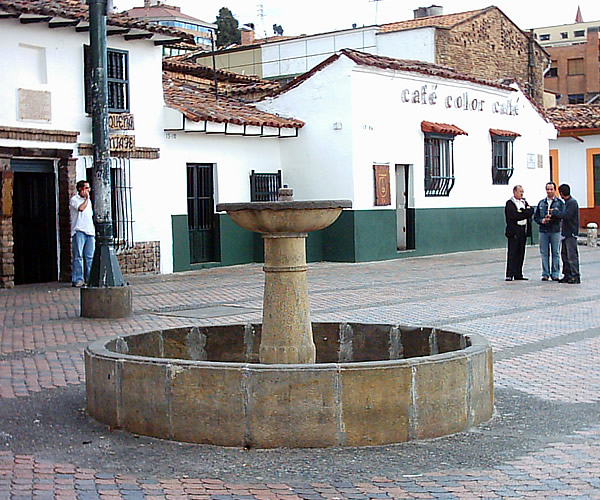
Politics of Colombia
The Republic of Colombia is a presidential representative democratic republic. Its governance structure is delineated in the country's Constitution, which was adopted in 1991 and is described as one of the most progressive within the region.
Politically, the country is organized into 32 departments and a Capital District, Bogota.
There are three powers in the Colombian democracy structure: executive, legislative and judiciary.
Executive Branch
The executive power is held by the President of the Republic of Colombia, the Vice-President and the Government of Colombia. The President is head of the State, the Government and the highest administrative authority. The President and the Vice-President are elected by universal, equal, secret, direct and non-compulsory citizen vote for a four-year term. The president cannot serve for more than two terms.
The current president of Colombia is Ivan Duque, elected in June 2018, who is to take office in August 2018.
The President appoints the Ministers that form part of the Government.
Legislative Branch
The legislative power falls with the Congress, which is formed by the House of Representatives, with 166 members, and the Senate, consisting of 102 members. The members of the Congress are elected directly through democratic vote for a four-year term that coincides roughly with the presidential term.
Judiciary Branch
The judiciary power in Colombia lies with the country's judiciary system, which is overseen by four higher courts: the Constitutional Court, the Supreme Court of Justice, the State Council and The Higher Judiciary Council. The Supreme Court of Justice is the highest judiciary institution of the country, with the power of judge the President and the members of the Congress. It oversees the activity of the National Public Prosecutor and the civil and military courts.
The Constitutional Court has the duty of defending the constitutional order, verifying the constitutionality of new laws.
Traditionally, Colombia's judiciary system was highly politicized, a state of affairs that the 1991 Constitution intended to change. However, the Colombian democracy is still weak and as of today the incidents of political intervention in the judiciary are quite frequent.
Political system in Colombia
Since its founding in the early 19th century, the country's politics has been characterized by a two-party structure, with intense rivalries between Conservative and Liberal politicians eventually unchaining one of the longest internal conflicts any country has had in recent history. The two-party structure was modified during political reforms in the early 2000s, enabling the country to advance towards a better representativity.
Currently, the country's main political parties are:
- Centro Democrático, a right-wing political party created in 2013
- Partido Cambio Radical, a center-right political party
- The Colombian Liberal Party, one of the two traditional parties, created in 1848, previously associated with center-left
- Partido Social de la Unidad Nacional, a center-right political party
- The Colombian Conservative Party, a right-wing party created in 1849
Politics of Bogota
As Colombia's capital city, Bogota is its administrative center and seat of the country's central state institutions. The seat of the presidential institution is the Palacio de Nariño, in Bogota's historical center, while Congress and the Supreme Court hold their meetings at a few blocks' distance, in Plaza Bolivar, the city's main square.
Bogota is run by the Mayor and the City Council. The mayor currently in office is Enrique Peñalosa, at his third non-consecutive term, a position he will hold until 2020. A list of the Bogota City Hall's offices and contact details can be found on the city's official website.
Additionally, Bogota is divided into 20 localidades, each with its own mayor and council.
Update 20/08/2018
Keep more of your money when transferring funds overseas!

If you want to move money abroad, from Colombia or to Colombia for example, Fexco provides efficient and secure global bank to bank transfers and bespoke payment solutions for both business and personal clients.
Why Fexco
Fexco provides a secure international money transfer service online or by telephone with bank beating fx rates and low fees. Specialises in high-value transfers.
Main characteristics
Fexco will help you to keep your overseas money transfer costs to a minimum.
| Margin | 0.6% |
|---|---|
| Regulator | FCA |
| Fee | £10 < £5K or Free > £5k |
| Mini | £1K |
| Ccy | All (130 currencies, incl ‘exotics’) |
| Services | Repatriation of funds, Property, Regular payments, High Value payments, spot, online, telephone. |
Get an online quote today
When you are ready to make your transfer, John and his team will be available to help you with better rates and an unrivalled service to make sure your funds are delivered securely and speedily.
